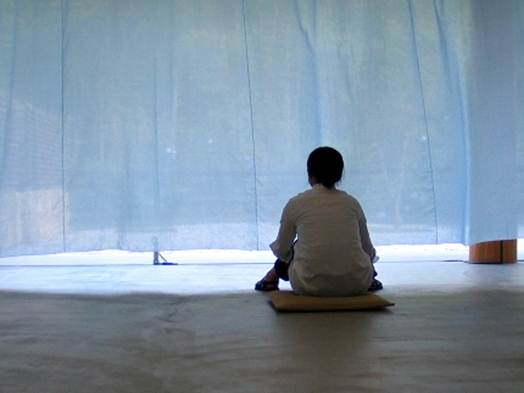Whether it's your boss, your mates or
your mum, handling criticism well is something we should all learn to do, says
Shane Watson
THERE is at tap doorin all of our lives
marked ‘Place where you will inevitably be dumped'. Even Madonna has this
trapdoor, even Adele and Michelle Obama. I still remember falling through it,
five years old again, ostracised in the playground and trying very hard not to
burst into tears - it happened the first time I was asked to write fashion
captions. My editor took one look at them, glanced up and said, ‘these are
hilarious: And she didn't mean it in a good way. Even now, 20 years on, I can
feel the room shrinking to the size of a matchbox. This was my first day in a
new job, and not only had I failed, but apparently I had failed to comic
proportions - and in the context of fashion. I was not worthy, I was a wannabe,
a loser.

Whether
it's your boss, your mates or your mum, handling criticism well is something we
should all learn to do, says Shane Watson
After years of practice, I'd like to think
I have become better at both writing fashion captions and dealing with
criticism. And yet every so often, a certain sort of criticism still has the
power to throw me off balance. Because here's the thing: a lot of the time we
take criticism on the chin and happily move on, but at times our bounce-back
system fails, and we don't... and on those occasions, the results can be both
messy and embarrassing for everyone involved.
Here is an example of how criticism affects
us all differently: last month, I went away for the weekend with friends and
forgot to put the crucial case of wine in the car. At the other end, I was met
with a barrage of old fashioned, full-on female criticism. My oldest girlfriend
called me an idiot - and I duly headed off into the night to sort out the
mistake. The previous year, however, a ham had been left behind; only the
person responsible (let's call her Julie) took exception to being criticised
for forgetting it. What she said was: ‘It's your fault for making me rush. You
should have brought it yourselves if it was so important'
See the difference right there? I took the
criticism like a well-adjusted adult. She reacted like a kid. But where
criticism is involved, it's never that simple, is it?

I
took the criticism like a well-adjusted adult. She reacted like a kid. But
where criticism is involved, it's never that simple, is it?
Fear of rejection is one of the reasons we
find criticism hard to deal with, according to consultant psychologist Dr
Cecilia d'Felice. And, in fact, when I trawled back over the many times I have
been found lacking and taken it bravely on the chin - like the missing case of
wine weekend - I realised there was a common theme. The criticisms all seemed
fair, and I felt secure in each of the situations, sure that I was either
loved, or at least valued, by the people criticising me. Julie, by the way, was
a new member of the gang. When I heard `you're an idiot and I can say that
because I love you', she heard `these people are rejecting me. I am not
acceptable'.
How we hear criticism also depends a lot on
who is delivering it; your personal trainer might scare you but then it's her
job to dissect your exercise habits, whereas boyfriends are supposed to adore
you and never, for example, remark that your thighs could do with some extra
punishing squats. Similarly, the hint of a reproach or, worse, a disappointed
glance from my mother is enough to make me rethink my whole existence. I'm not
remotely scared of her. I don't agree with a lot of what she says. But the
thought of her finding me lacking is seriously destabilising.
Naturally, too, some situations make you
more sensitive to criticism than others; the first day in a scary job would be
one. The Meet The Parents weekend would be another. `How much criticism affects
us depends on the level of investment,' says d'Felice. `If someone says you're
a bad friend or a bad mother, that's very different to saying you are not
keeping up with your coursework.' When I reflected on all the times I've
handled criticism with relative ease, they were all in the areas of Things I
Could Easily Improve or just Things I Didn't Give a Stuff About. When I dug a
bit deeper I realised the recent criticisms that really stung were the ones to
do with my (relatively new role) as a wife and working stepmother. You can
criticise my cooking, my untidiness, my habit of wearing slippers and leather
trousers (it is bad) as much as you like, but don't even hint that I'm not
managing to keep all the balls in the air.

Naturally,
too, some situations make you more sensitive to criticism than others; the
first day in a scary job would be one
`It's all about self-confidence isn't it?'
says my friend Jenny, who strikes me as the most self-assured thirty-something
you could ever meet. She worked in a pretty much all-male environment for
years, where `no-one minced their words, and it never bothered me because I
knew I was good at what I did'. But now Jenny has a partner and a baby and
whole new worlds of insecurity have opened up. ‘I hear criticism in everything.
When someone asks me how the baby is doing; when my boyfriend asks me when I'll
be home.' Women are peculiarly adept at picking up on critical vibes, even
unspoken ones, especially when we feel insecure, says clinical psychologist Dr
Jay Watts. `Because of that we often "read into" communications: In
other words if we're feeling insecure, or as if we might be failing, then
almost anything can feel like criticism. A culture of high expectations has
turned up the volume of criticism and it feels like women are much more
susceptible to this pressure than men.
Much of our conversation is critical of
ourselves, each other, women in the public eye we don't even know and, as a
result, we all imagine we are being judged all the time. And if you're reading
this and wondering how to be a good critic yourself? Constructive criticism
from friends, lovers or employers has to start from the position that this is a
failing that can be easily remedied, not a fatal character flaw. It has to be
balanced by positives (your captions are bonkers, but I know you can do it, so
how about trying this...). I have a girlfriend who gives it to me straight from
the hip regarding work (`Not your best'), clothes ('Eew, you look like Matt
Lucas'), behaviour ('That wasn't very generous, was it?') but never when I am
feeling vulnerable and always with a big grin. And you know what? I am grateful
for it. Criticism is a gift if you get it right.
7 ways to handle tough critcism
Here’s how to make the most of that rare
thing – honest feedback
Really focus on what is being said to you,
says Dr Cecilia D'Felice, author of 21 Days to a New You ($12.18, Orion).
Possibly write it down. The chances are that, initially, you have only heard
the negatives and ignored the positives. Be realistic. They are only words.
They are not going to kill you. Keep it in perspective. Don't take the attitude
that this means everything you have done is wrong. Train your boss to be
solution focused.
Be quiet. Don't leap in to defend yourself.
Listen and wait.

Be
quiet. Don't leap in to defend yourself. Listen and wait.
Treat extreme reactions with caution. If
you feel tempted to lash out or have a physical reaction, ask yourself why you
feel so upset. Could it be related to criticism you've received in the past?
Remind yourself that your reaction is not necessarily appropriate to the
situation.
Ask for specific tips on how to improve -
not just vague criticisms. (This way people will start to mentor you, too)
View the person making the critique as a
valuable resource, says Dr d'Felice. Remind yoursel that receiving feedback is
essential for your personal development.